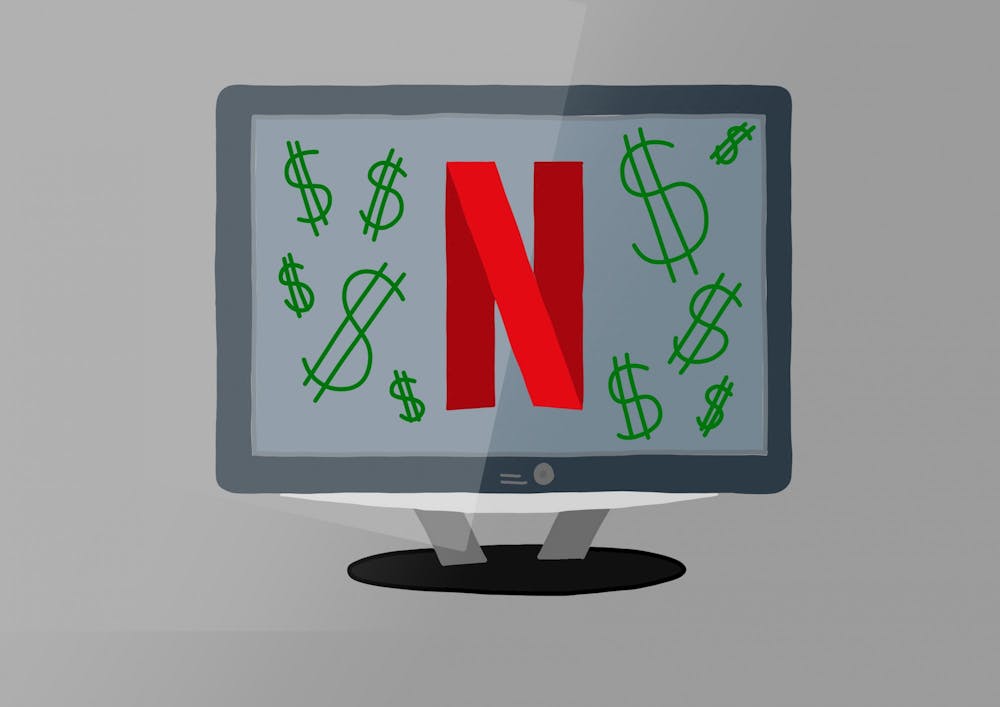In a time with ever-increasing competition between streaming services, it is difficult to imagine the release of a harsh policy from one of the streaming giants. Nonetheless, a new Netflix policy preventing password sharing has been at the center of a great deal of backlash — particularly from college students — in recent days. This policy has been rolled out in various countries up to this point, and a universal implementation seems imminent.
The specific aspect of this policy that caught the attention of students at the University and across the nation requires users to register their devices with a home address and the subsequent need to check-in at the designated address once every 31 days. If someone does not have the ability to check into the designated address — or if someone just wants to share their account with someone that does not live with them — they will be charged a fee for any additional profiles outside of the home.
Third-year Architecture student Mikaela Gustitus expressed her unlikeliness to use the service after the release of the policy.
“I don’t go home every thirty days because I’m in Wisconsin, so I think I wouldn’t use it at all,” Gustitus said. “It is so inconvenient to have to check in all the time.”
Darden School of Business Prof. Rajkumar Venkatesan gave some insight on the background of this seemingly rash and unexpected new policy.
“Netflix has nowhere to hide,” Venkatesan said. “They have to show the market how many people have added onto the platform and how many people are paying members… Netflix has a unique challenge in that sense.”
To many college students, though, the reasoning was null, as this announcement caused outrage. Students were left asking how they were meant to check in at home when they live in a different city, state or country for a large portion of the year.
While it seems that Netflix is amenable to the opinions of their users, young people have been tearing Netflix apart on social media and beyond ever since the news of this new policy broke. Knowing that the policy disproportionately affects them, students have taken to platforms such as Twitter and TikTok to call Netflix out for their seemingly absurd new decision.
“This new #Netflix sharing password system is ridiculous,” one Twitter user said. “Because I’m not at home and at college, they want me to make my own account even though I go back home? Do they not understand not all families are constantly in one household together?”
For second-year College student Hannah Jackson, social media was the first place that she heard about the new policy.
“I saw it on Tiktok first, someone complaining about it, and then I scrolled through the comments,” Jackson said.
In Assoc. Media Studies Prof. Jack Hamilton’s opinion, the overlooking of college students is a colossal error on Netflix’s behalf.
“The demographic that the college students are in is probably the most valuable demographic in terms of what anyone wants,” Hamilton said. “If you can cultivate brand loyalty or brand affection to people who are teenagers or young adults, that’s a really valuable thing. Everyone wants those viewers.”
Young viewers like Gustitus feel that the policy alienates them, and the decision will likely lead to a decline in young viewership. Going head to head with the college population in the United States is arguably a risky move for Netflix, particularly when alternative streaming services such as Disney+ are gaining an increasingly large portion of the pie.
Prof. Venkatesan said that in the end Netflix will likely not recognize the need to please their younger demographic right away.
“They have bigger fires to put out,” Ventatesan said.
Unless Netflix edits the policy to accommodate them, students will likely search for loopholes to continue using their parents’ accounts. Regardless, Netflix’s fate in the eyes of students remains unsure. Is this the downfall of Netflix in the eyes of the student? Only time will tell.







